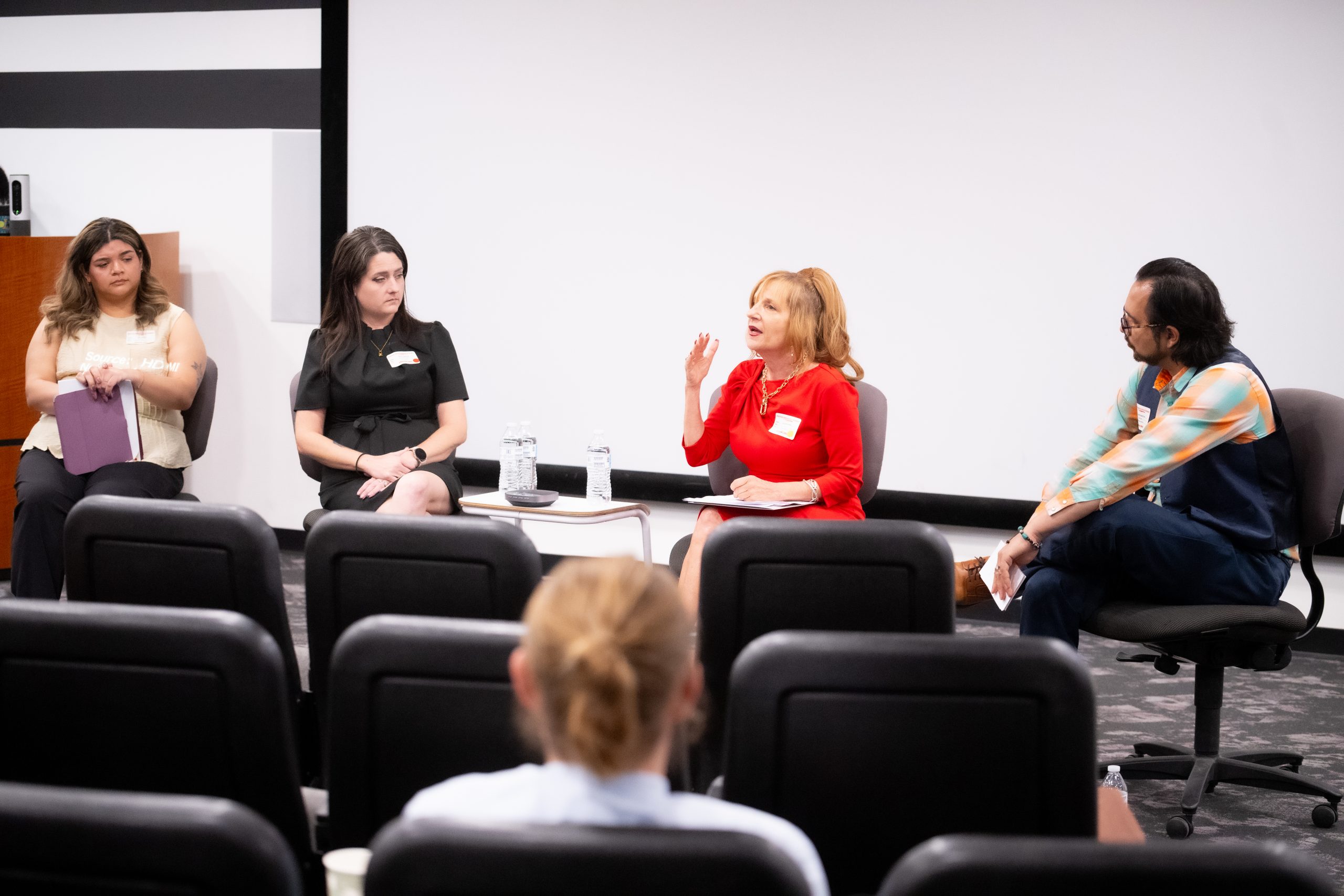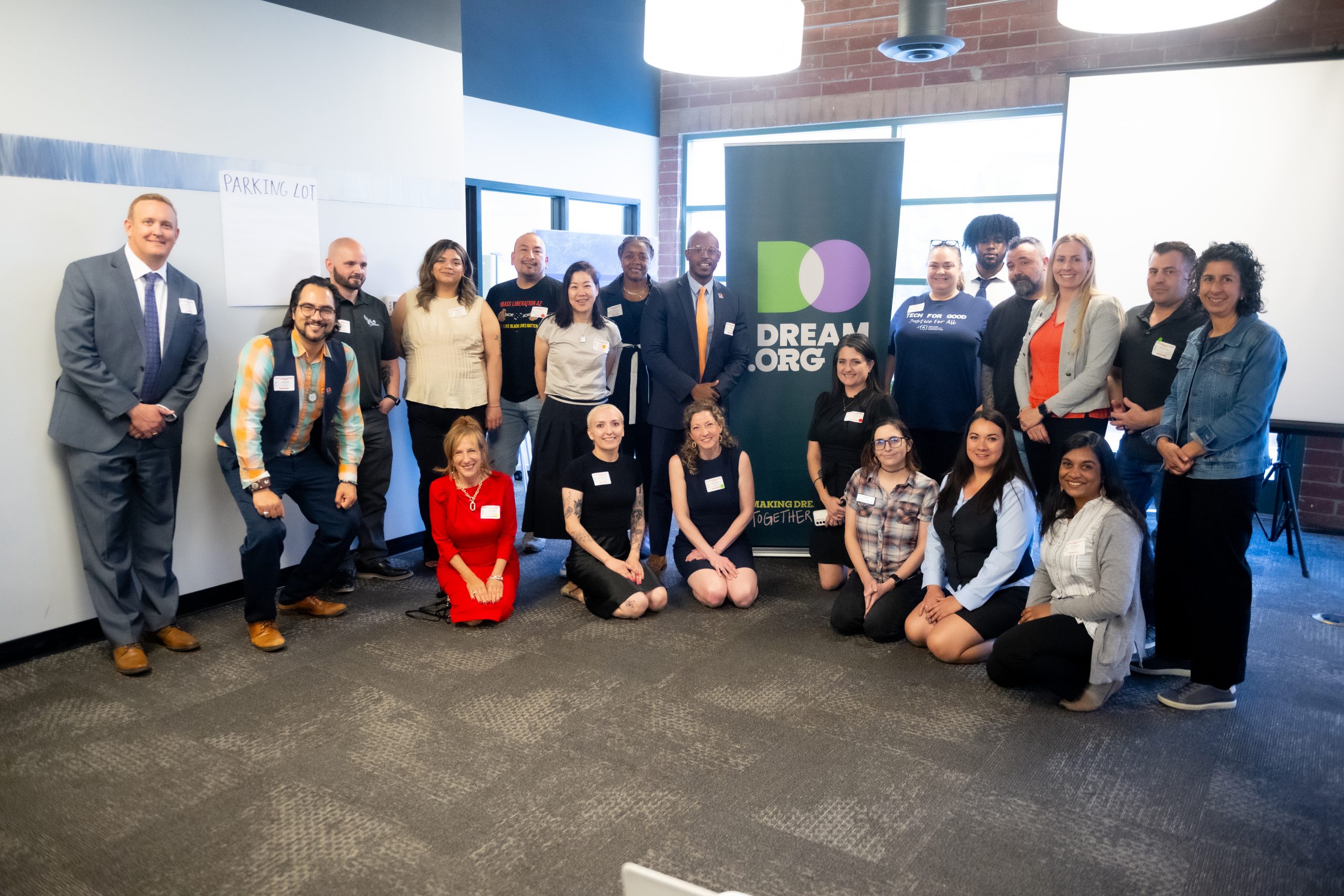Tech Meets Justice: Scaling Expungement Solutions at Dream.Org’s Justice Innovation Summit
“I had a dream to build an app to help people expunge their criminal records, but I didn't know where or how I would get the money to do it. As a woman, and first-time entrepreneur in the state of Utah, it wasn't easy to raise capital. Dream.Org helped me access a justice tech accelerator program and made an early stage investment in our company that opened doors to more capital, partnership, and opportunity.
Rasa's platform is now live in Utah and Arizona, and since launch, we've been able to help more than 21,000 people with records determine their options for record clearance. In under three minutes, we tell a person what is on their record and whether it is eligible for expungement. By harnessing technology, Rasa Legal is helping returning citizens clear their records, reclaim their lives, access stable housing and better employment, and build a different future for their families. It’s an exciting time to partner with Dream.Org as they continue championing tech-driven solutions led by those with lived experience in the justice system.”
-Noella Sudbury, Founder and CEO Rasa Legal
Dream.Org brought together researchers, impacted leaders, and tech innovators at the inaugural Justice Innovation Summit in Tempe, AZ, led by Pamela Fann, a member of Dream.Org’s Dream Entrepreneurship Network. The Justice Innovation Summit, funded by Arnold Ventures, focused on bridging the gap between directly impacted advocates, community leaders, and academic researchers working toward one goal: to uplift evidence-based research solutions and policy changes that simplify expungement.
Our Justice Innovation program invests in technological solutions led by those with lived experience with the justice system. We are reimagining a system where financial incentives and investors reward decarceration, instead of fueling the prison industrial complex. We've already awarded $1.4M to startups tackling mass incarceration, and we continue to support directly impacted justice tech innovators with consulting, capital access, and a community that propels their businesses to work at scale. This work lays the foundation for Dream.Org’s work to build a more just and equitable future for all.

Criminal records limit both individual opportunity and national economic growth, and as a result of few employment options for formerly incarcerated people, over $372 billion was lost in wages. Expungement—the legal process of clearing or sealing a criminal record— can restore opportunity, yet only 6.5% eligible individuals pursue it within five years, because of its costly and complex process. That gap between eligibility and access represents millions of missed second chances and untapped human potential.
Noella Sudbury, an alumnus of Dream.Org’s Justice Tech Accelerator, a member of the Dream Entrepreneurs Network and CEO of Rasa Legal, has a solution. During the early years of her work, where she offered expungement assistance through volunteer clinics, she witnessed long lines and often 45- to 60-minute intake times which made the process slow and frustrating. These challenges inspired her to dream of a better system—one where people could access their records on their phones, gain insight into their eligibility for expungement in less than ten minutes, and connect with a lawyer who could help with their unique situation. That vision became the technology platform, Rasa Legal.

Panelists Kara Janseen (KJ Consulting), Kat Jutra (Free Arizona), and Allison Rapping (Arouet Foundation) shared their lived experience with the justice system, using their personal experiences with incarceration or working on the frontlines of re-entry to leverage change. Their stories highlighted the difficulties they faced in rebuilding their lives after incarceration. For those with a criminal record, basic rights such as accessing housing, obtaining employment, and pursuing education become barriers to accomplishing goals- however, record expungement offers a way to get opportunity back. Sudbury led panelists Colleen Chien (Paper Prisons Initiative), Steve Scharboneau (criminal defense attorney and Arizona state lobbyist), Aparna Komarlo (Redo.io), and Nora Cregan (the Access Project) in a discussion on research and data relating to expungement. Whether it’s the lack of support for people without a high school diploma, language barriers for ESL communities, or the emotional weight of revisiting a painful chapter, the panel emphasized: these aren’t just bureaucratic hurdles, they’re deeply human ones. The discussion shared hope, outlining how smarter tech and better tools can help break down these barriers and make justice more accessible. Following the panels, guests participated in breakout sessions, exploring the power of smart tools to expand access to second chances.
Justice Innovation isn’t just about new tools—it’s about shifting power to those who have lived through the harms of our current system. Thanks to the investment by Arnold Ventures, we were able to uplift those who have been directly impacted into the conversation.
Dream.Org is hosting working groups that will continue to bring the academic community together with leaders like Sudbury. Together, we will provide evidence-based recommendations that highlight technology as the force needed to mend our broken mass incarceration system.

To learn how you can get involved in our Justice Innovation program or join a working group, please contact Kasheef Wyzard, Dream.Org’s Senior Director of Tech and Innovation at Kasheef@Dream.Org. We look forward to hearing from research professionals interested in leveraging the perspectives of those with lived experiences in their work.
At Dream.Org, we’re not just solving today’s problems—we’re building a movement for tomorrow.
